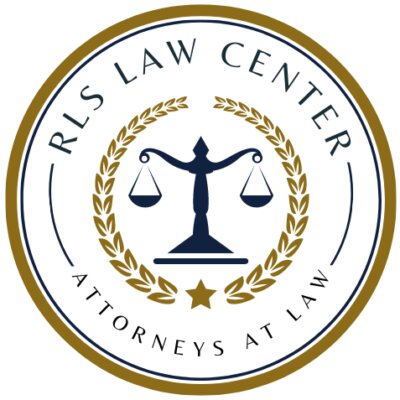Best Collaborative Law Lawyers in Las Pinas
Share your needs with us, get contacted by law firms.
Free. Takes 2 min.
Free Guide to Hiring a Family Lawyer
List of the best lawyers in Las Pinas, Philippines
About Collaborative Law in Las Pinas, Philippines
Collaborative law in Las Pinas, Philippines is a legal process where both parties involved in a dispute work with their respective lawyers in a cooperative and non-adversarial manner to reach a mutually beneficial agreement. This approach aims to resolve conflicts without going to court, saving time and money for all parties involved.
Why You May Need a Lawyer
You may need a lawyer for collaborative law in Las Pinas, Philippines if you are involved in a dispute with another party and wish to reach a resolution without going to court. A lawyer can help guide you through the collaborative process, ensure your rights are protected, and help you negotiate a fair agreement.
Local Laws Overview
In Las Pinas, Philippines, collaborative law is governed by the Family Code of the Philippines. This code outlines the rights and responsibilities of parties involved in family disputes, including divorce, child custody, and property division. It is important to familiarize yourself with these laws before entering into a collaborative law process.
Frequently Asked Questions
1. What is the difference between collaborative law and mediation?
In collaborative law, both parties have their own lawyers who help them negotiate a settlement. In mediation, a neutral third party helps facilitate a conversation between the parties to reach a resolution.
2. How long does a typical collaborative law process take?
The length of a collaborative law process can vary depending on the complexity of the case and the willingness of both parties to cooperate. On average, it can take several months to a year to reach a settlement.
3. Can collaborative law be used for all types of legal disputes?
Collaborative law is typically used for family law disputes, such as divorce, child custody, and property division. It may not be suitable for all types of legal disputes.
4. How much does it cost to hire a collaborative law lawyer in Las Pinas, Philippines?
The cost of hiring a collaborative law lawyer can vary depending on their experience and the complexity of your case. It is important to discuss fees and payment terms with your lawyer before starting the collaborative law process.
5. What happens if we cannot reach a settlement through collaborative law?
If both parties are unable to reach a settlement through collaborative law, they may need to resort to traditional litigation in court to resolve their dispute.
6. Can I use collaborative law if I am already in the middle of a court case?
It is possible to switch to collaborative law from traditional litigation even if you are already in the middle of a court case. However, both parties must agree to the change in approach.
7. Is collaborative law confidential?
Yes, collaborative law is confidential, meaning that discussions and negotiations conducted during the process cannot be used as evidence in court if the case goes to litigation.
8. Do I have to hire a lawyer for collaborative law?
While hiring a lawyer is not mandatory for collaborative law, it is highly recommended to ensure that your rights are protected and that you reach a fair settlement.
9. Can collaborative law be used for business disputes?
Collaborative law is primarily used for family law disputes, but it can also be used for some types of business disputes. It is important to consult with a lawyer to determine if collaborative law is suitable for your situation.
10. How can I find a collaborative law lawyer in Las Pinas, Philippines?
You can find a collaborative law lawyer in Las Pinas, Philippines by asking for recommendations from friends or family, searching online directories, or contacting local bar associations for referrals.
Additional Resources
If you are in need of legal advice for collaborative law in Las Pinas, Philippines, you may find the following resources helpful:
- Integrated Bar of the Philippines (IBP) Las Pinas Chapter
- Family Court of Las Pinas
- Philippine Association for Collaborative Law
Next Steps
If you are considering collaborative law for your legal dispute in Las Pinas, Philippines, the first step is to consult with a collaborative law lawyer to discuss your options. They can help you understand the process, assess your situation, and guide you through the collaborative law process to reach a fair and amicable resolution.
Lawzana helps you find the best lawyers and law firms in Las Pinas through a curated and pre-screened list of qualified legal professionals. Our platform offers rankings and detailed profiles of attorneys and law firms, allowing you to compare based on practice areas, including Collaborative Law, experience, and client feedback.
Each profile includes a description of the firm's areas of practice, client reviews, team members and partners, year of establishment, spoken languages, office locations, contact information, social media presence, and any published articles or resources. Most firms on our platform speak English and are experienced in both local and international legal matters.
Get a quote from top-rated law firms in Las Pinas, Philippines — quickly, securely, and without unnecessary hassle.
Disclaimer:
The information provided on this page is for general informational purposes only and does not constitute legal advice. While we strive to ensure the accuracy and relevance of the content, legal information may change over time, and interpretations of the law can vary. You should always consult with a qualified legal professional for advice specific to your situation.
We disclaim all liability for actions taken or not taken based on the content of this page. If you believe any information is incorrect or outdated, please contact us, and we will review and update it where appropriate.








